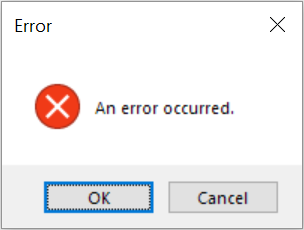Radiating Information
According to the Hacker Ethic, per Steven Levy in Hackers, all information should be free. Stewart Brand anthromophized it and noted the tension betweemm the cost of distributing information going down and the value of having the right information at the right time going up. He said
It seems like there’s a couple of interesting paradoxes we’re working with here. That’s why I’m especially interested in what Bob Wallace has done with PC-WRITE and what Andrew Flugelman did before that with PC-TALK. On the one hand information wants to be expensive, because it’s so valuable. The right information in the right place just changes your life. On the other hand, information wants to be free, because the cost of getting it out is getting lower and lower all the time. So you have these two fighting against each other.
So now you know where the idea that information should be free comes from.
The thing is, the information might want to be free, and there are those that will seek out the information, when they feel they need it, but that doesn’t say anything about people having the information they need when need it. Because regardless of what the information might want, it doesn’t have the ability to go out and find people.
On the other hand, we, as developers of systems and platforms, do have access to lots of information that wants to be free. And it’s up to us to make sure that information gets where it wants to be.
You’ve probably seen an error message like this

That’s not very helpful, is it. And the worst part is that the person who made that dialog box show up almost certainly knew more about the problem. They just chose to hide the information.
That’s a pretty obvious example of information being hidden by not being shown. Another way important information gets hidden is by being drowned out by less important information. Let’s say you’ve got a service (like a Wordpress blog with a security buddy plugin) that sends you the status of a security scan every day at 2:00 AM. And every day it sends you the same list of 7 files that have been replaced by the overnight backup. How long do you think it will take before you either just ignore that email or come up with a rule in your email client to delete it, or at least shuffle it off to an ignored folder? So that when one day the email says 10 files have been changed you never see it, let alone do anything about it. In that case, the information is free and available, but it’s just sitting there waiting for someone (you) to notice/care.
What that’s really pointing at is the difference between data, information, knowledge, and wisdom. We’re drowning in data. The key is to take that data, distill out the information in it, and present it as knowledge to the user. I don’t need 100 emails from all of the services I care about every day telling me they’re working fine. An email that one of them crashed and has restarted is useful information, but that can happen for lots of transient reasons out of my control, like a power outage, network drop, or hardware failure. That’s useful knowledge and I’ll care about it soon.
(Almost) Nobody reads automated status emails. What I really want is the knowledge that the service has tried to restart multiple times in the past 5 minutes, and hasn’t been able to reach a healthy state. That’s knowledge I need to respond to NOW.
The same applies to letting my users/customers know how things are going. They don’t want daily emails that everything is OK. But a red banner that shows up on every page of the website telling them about current problems/outages is knowledge they can use.
Or as my GPM Brad told me many moons ago, “Nobody reads the status email. I need to be alerted to the problem, so do that instead.” It doens’t matter how free the information is or wants to be. What matters is that the people who need to know it do know it when they need to. The value of having the right information at the right is incalcuble. Even if the cost to deliver a header or not deliver it, over the cost of the lifetime of a website, is esentially zero.
